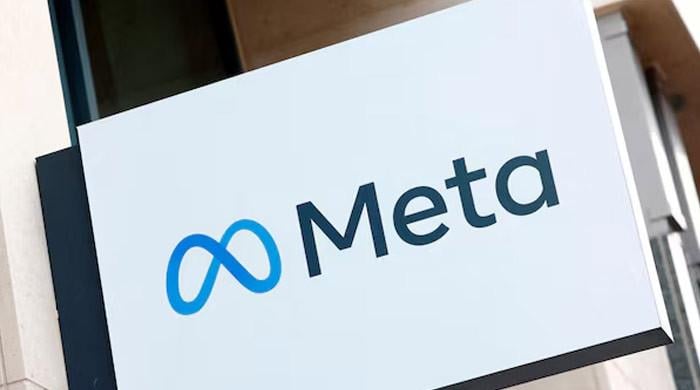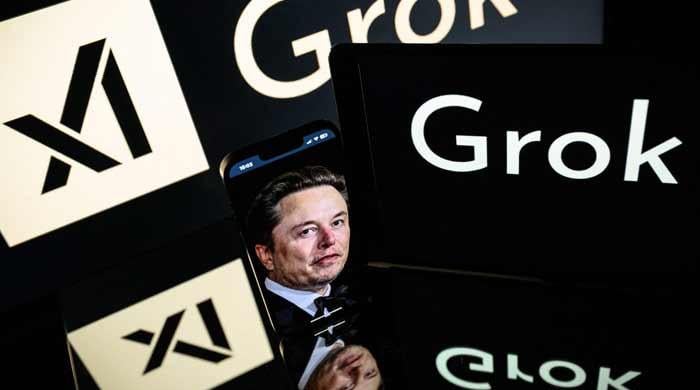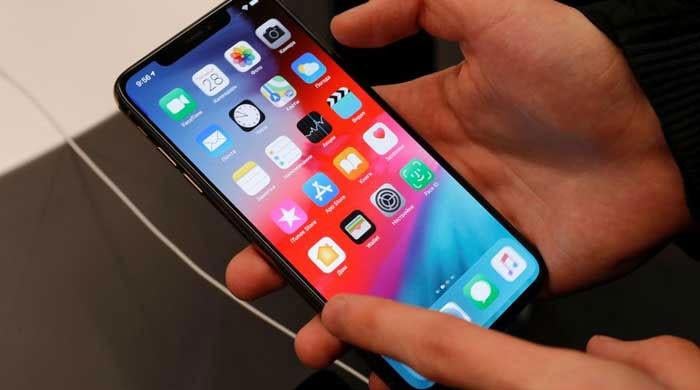Health tech start-up Kangaroo Care AI wins She Loves Tech 2024 finale
“When these start-ups succeed, we are going to create jobs and solve complex challenges,” says Sadaffe Abid
September 06, 2024
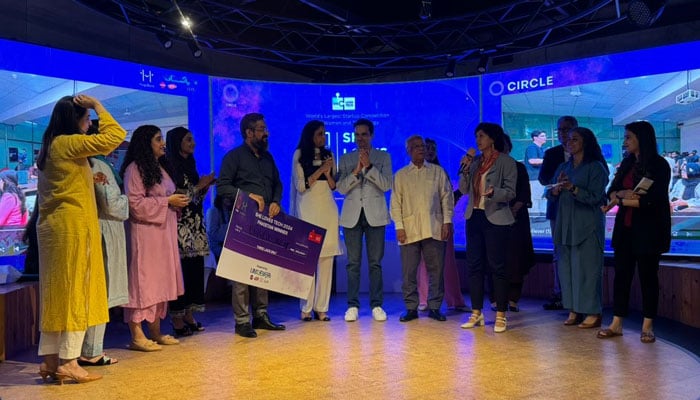
Karachi witnessed a vibrant showcase of technological finesse as women entrepreneurs pitched their innovative businesses before a panel of esteemed judges for the national finale of the She Loves Tech eighth edition.
The boundless potential of women entrepreneurs and their trailblazing ideas on the competition’s stage was a refreshing sight for judges who found it challenging to select a winning start-up.
Among a diverse variety of eight start-ups pitching their innovative businesses, KangarooCareAI — a startup dedicated to improving neonatal healthcare — claimed the winner’s title taking home Rs300,000 in prize money.
“It has been a year since we began selling our products,” said Islam un Nisa, the winner of the competition.
Islam, who couldn’t attend the finale on-site due to health reasons, shared her excitement on claiming victory. “I would appeal to the Pakistani government to allow participation of ‘manufactured in Pakistan’ products in public tenders, so that we can grow both national and internationally,” she said, highlighting the need of government support for manufacturing start-ups in the country.
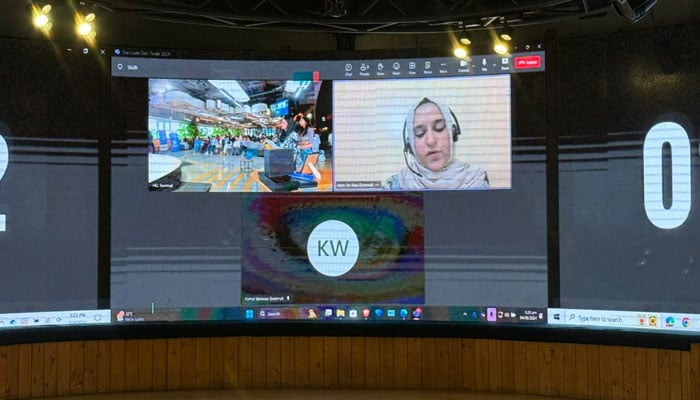
Agri Gel — a sustainable agricultural solutions business — won the second place with its winner being awarded Rs150,000.
One of the competition’s participants, Eco Bricks — a business that aim to reduce plastic waste pollution — was awarded a wild card third prize for their innovative idea to finding sustainable and affordable solution for tackling the impact of climate change.
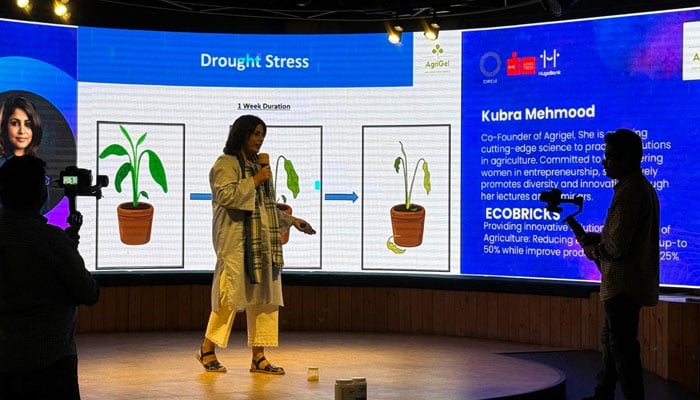
Other business that participated in the competition included Code School, EPO, TB AI, Salam Kids, Be Me. The event also saw notable attendees including former State Bank of Pakistan governor, Dr Ishrat Hussain.
The judges of the competition included Misbah Naqvi, co-founder and general partner of i2i Ventures, and Habibullah Khan, the CEO of Penumbra; Shaista Ayesha, CEO of Seed Ventures; Naz Khan, the principal country officer of the International Finance Corporation; and Ali Rashid, the Government of Sindh’s spokesperson.
Emphasising the significance of the competition in Pakistan's tech landscape, Sadaffe Abid — the CEO and Founder of Circle Women Association that helms the competition in Pakistan — said: “This platform is essential for empowering female innovators, especially given the current one percent representation of women in entrepreneurship.”
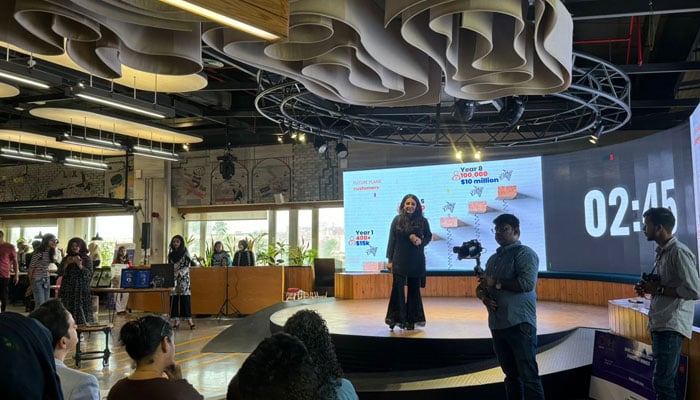
She added that the competition saw start-ups solving pressing challenges for Pakistan. “When these start-ups succeed, we are going to create jobs and solve complex challenges.”
Abid acknowledged that times in Pakistan are tough for start-ups, as they continue to face challenges in the country’s struggling economy.
“Some start-ups are really facing challenges because there is a funding constraint also. But this is also a time for innovation because when we have limited resources, that is when innovation happens, creativity and imagination happens,” she said, speaking with Geo.tv.
The CIRCLE founder maintained that the resilient women entrepreneurs will continue with their projects, they will iterate, innovate, grow and create jobs.
Naqvi, one of the judges, said she was impressed by the line-up of start-ups at the competition, which made it difficult to choose just one as the winner. She also commented on the challenges that tech start-ups are currently facing in Pakistan but was hopeful owing to the “grit and perseverance” of Pakistani founders to build real businesses.
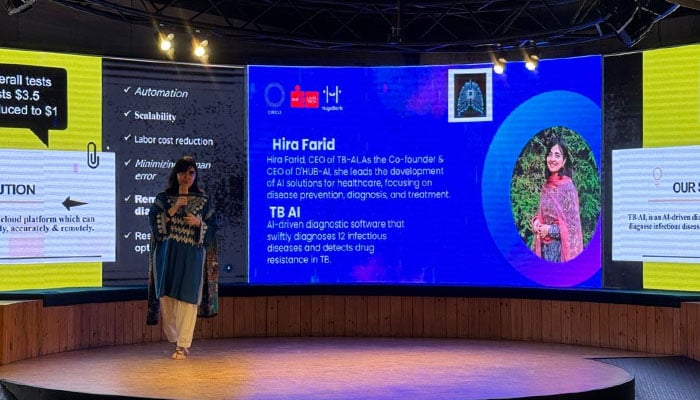
Rashid, who is also the chairman of the Discover Group, termed the experience of being a judge in the competition as “good”.
“Sindh government is always welcoming of such initiatives… the government is focused on women empowerment and is also a part of Pakistan Peoples Party’s manifesto, so we want to empower women in this regard,” he said speaking with Geo.tv.
One of the judges and an entrepreneur himself, Habibullah Khan, said that the start-ups this time were impressive owing to their genuine global innovation.
“We’re not talking about using AI just as a filler because it’s a buzz word. They had AI integrated into business models. There were eco-friendly, green start-ups — very impressive. Like they are start-ups that can affect GDP within a few years.




